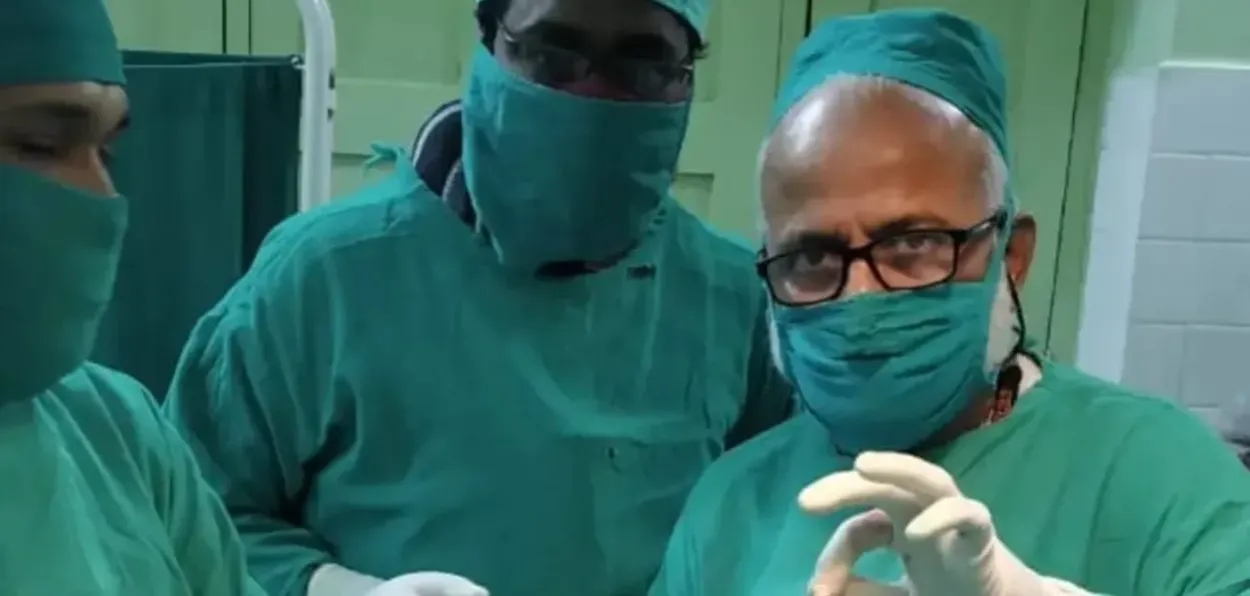
Mehfooz Alam/Patna
Dr. Ijaz Ali wears many hats: he is a well-known surgeon of Bihar, a former member of Parliament, and a crusader for the rights of marginalized people. As president of the All India United Muslim Morcha, he has extended his support to the BJP for its pro-Pasmanda stance, and, is thereby, supporting the NDA candidates in the ongoing Lok Sabha Elections, Mahfooz Alam spoke to Dr. Ijaz Ali on his life and mission.
Dr.Ijaz Ali was born in a lower-middle-class family in 1958. His father Sheikh Mumtaz Ali was the first in the family to have received an education and he rose to the position of BDO in the British Raj. Ijaz Ali started his education at a Madrasa Anjuman Islamia School associated with an orphanage in Munger town up to the seventh standard.
However, he joined the government school for his eighth standard and later cleared his matriculation examination from the Hazaribagh District School. He was always a topper in school and also topped the matriculation examination at the State level.
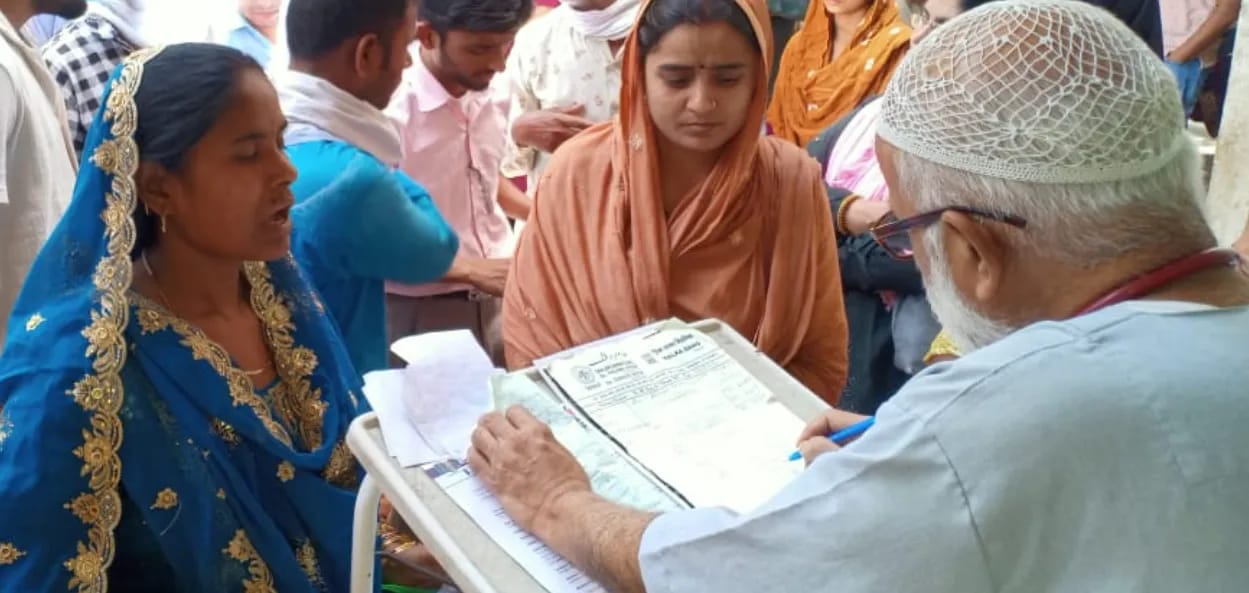 Dr Ijaz Ali at his clinic
Dr Ijaz Ali at his clinic
Ijaz Ali says that he was the sixth among 10 brothers and sisters. Though his father was paid well due to a large brood of children, the family lived hand to mouth. So as a father, he focused on giving education and imparting moral values to all his children.
Dr.Ijaz Ali says he studied in a school meant for orphans since his father could not afford to send him to a private school. "I was a very good student and stood first in every class,” he said proudly.
Thereafter, he joined the prestigious Science College in Patna for further studies. "I loved mathematics, physics, and chemistry, but my parents wanted me to become a doctor and I shifted to biology. At first, I didn't like it ( the idea of studying biology), but my family admitted me to the Science College in the Biology stream.
“Studying biology was the turning point in my life,” says the surgeon, who is a name to reckon with in the state and outside.
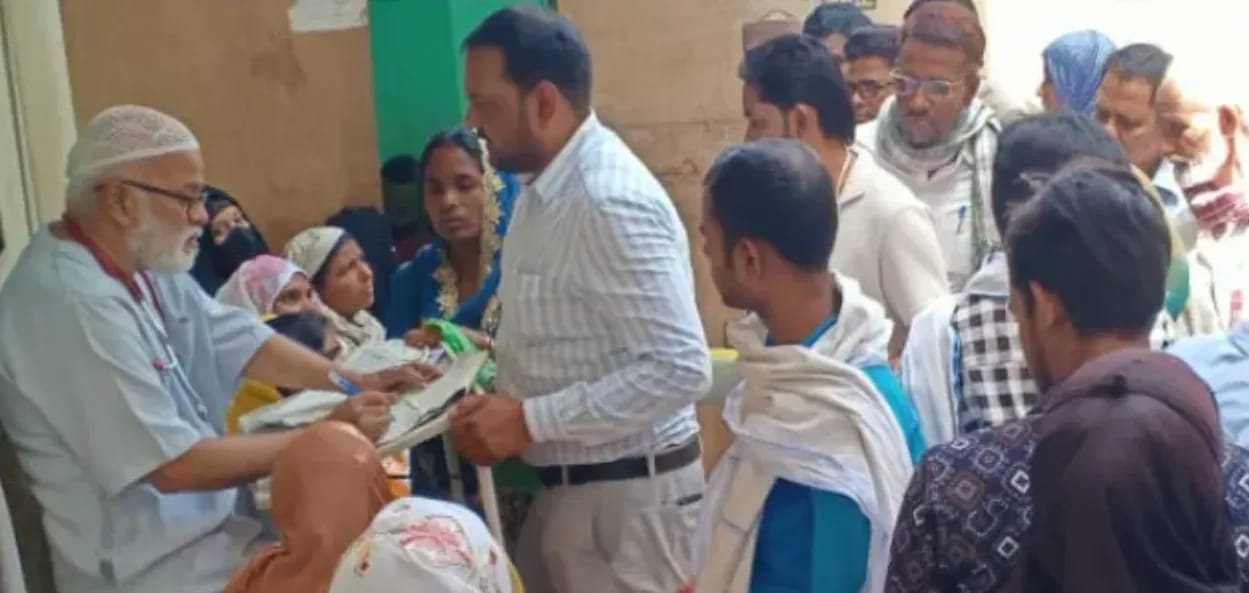 Dr Ijaz Ali is always surrounded by patients
Dr Ijaz Ali is always surrounded by patients
For him, the first year of college was very difficult, as he had no interest in biology. Soon he realized there was a good future ahead for him if he studied well. “As a student, I never wasted time - he follows this routine even today. I worked hard, and soon I started enjoying the subject I once hated. I also topped the higher secondary examination in the Patna Science College I also was among three toppers of the entrance examination for the MBBS course in the Patna Medical College.”
When Ijaz Ali joined the Patna Medical College in 1975, his family was proud of him as he would be the first one among them to become a doctor. However, he faced financial difficulties while studying in the PMCH, “Food in PMCH canteen was expensive so I arranged to eat at another hostel, next to PMCH and spent two years studying and spending time in the crowded neighborhood. Buying books was also difficult for me. When he reached the second year”
He said, "Books were costly and I didn't have money to buy them, so I used to manage my studies somehow. “Even during my medical studies, my passion for studies did not let any difficulty stand in the way. I was in the top three in MBBS in medical college and I got admission for M.S.”
Dr. Ijaz Ali says he got some relief while studying for his Master's in Surgery. In 1980, he married the daughter of Ghulam Sarwar, a prominent political leader. Due to his in-law's support, he was relieved of basic financial problems and also joined as an assistant to Dr. Kamal Ashraf, a well-known urgeon of the city.
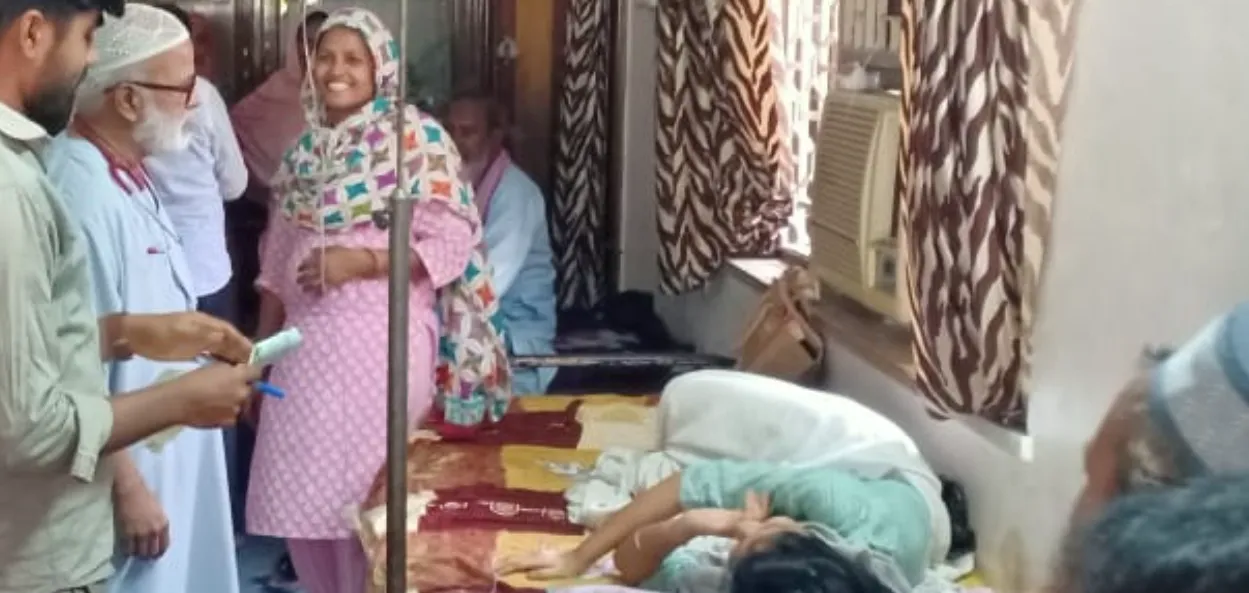 Dr. Ijaz Ali treating a hospitalised patient
Dr. Ijaz Ali treating a hospitalised patient
“I used to get a Rs 400 stipend from PMCH and most importantly, I got the opportunity to stay with Ghulam Sarwar and learn from Dr. Kamal Ashraf. I was eating home-cooked food and was being trained as a surgeon by the best person.” He completed his MS degree from Patna Medical College and again topped the exams.
On the advice of Ghulam Sarwar, he opened a clinic in 1984 in his house in Patna. In the same year, Prime Minister Indira Gandhi was assassinated and there was uproar throughout the country. Slowly my picked up. “In 1990, Ghulam Sarwar became the Minister of the Bihar Government and he handed over his house to me for use as a clinic.
Dr. Ejaz Ali took up medicine as a social service and while all consultants in Patna charge Rs 300 as consultation fees he has kept it as low as Rs 10.
“A good doctor was available at a lower fee, so a caravan of people started arriving at the hospital. The rickshaw-pullers, thela-walas, sabzi-walas, and people from the rural areas started coming in droves," he said.
“I was a surgeon but started all kinds of treatment. Many villagers who came to me had no money to eat and I wondered how they would buy medicines. Though I was a surgeon, I was treating patients with tuberculosis, kala azar, and everything.”
He realized most of his patients were poor Muslims. He reduced his fees for surgery to a minimum. I understood that there is so much poverty among Muslims.
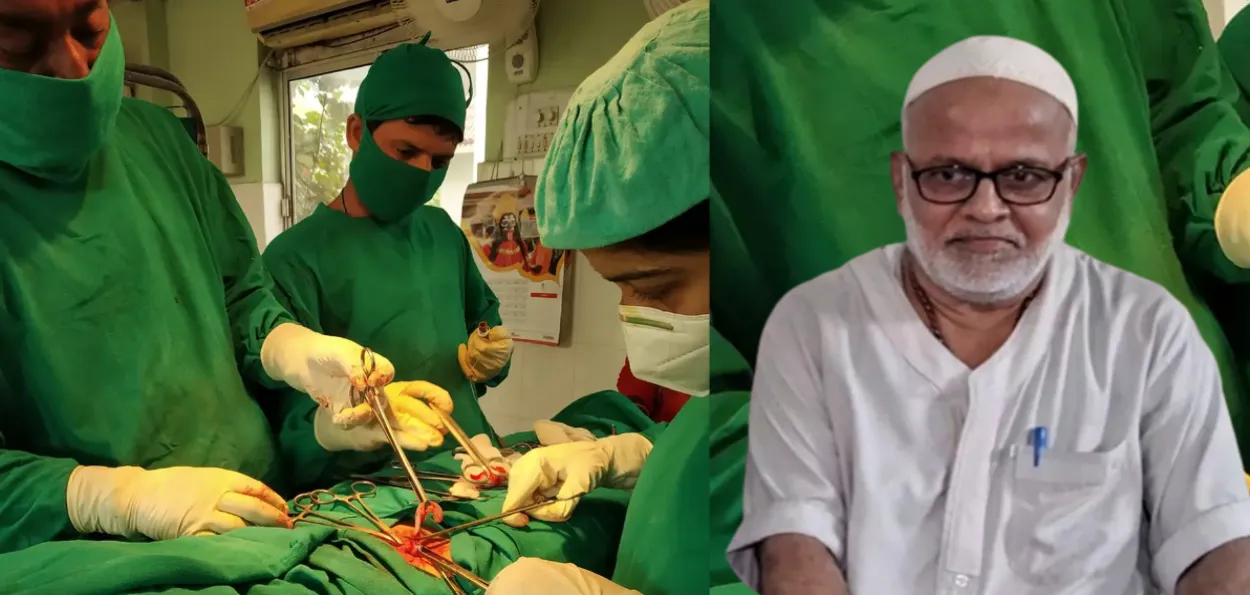 Dr. Ijaz Ali
Dr. Ijaz Ali
Dr. Ijaz Ali says he became successful because of his hard work and discipline but he is pained to see that children in neighbourhood where he was born were living in the same conditions. "Children are still hurling abuses at each other while playing street games and indulging in Lathi Danda in Muharram
“After I became a doctor and started practicing, many poor Muslims came to me for treatment and consultations. I started visiting the villages to know their conditions. After visiting hundreds of villages and seeing the condition of people, I felt that I should fight for their development and welfare.”
For 44 years, Dr. Ijaz Ali has been traveling to a village every Friday to be with the people and understand their problems. “During 1990-92, the environment across the country was surcharged. Ghulam Sarwar Sahib was a great leader of the Muslims of Bihar, so many people used to visit him. He was my father-in-law, and I lived with him. He did not like people who seek political advantage by inflaming the feelings of Muslims. Under these circumstances, I felt that Muslims do not need emotional slogans but should get opportunities to become good and empowered citizens.”
Dr. Ijaz Ali says that to bring justice to the weaker sections of backward Muslims, he set up the All India Muslim United Morcha. “Our demand to the government is that the Dalit section of the Muslims should also be provided with the facility of Section 341 of the Constitution so that they can also raise their standard of living.
“From what we have seen on the ground’, Dr. Ijaz Ali says, “There is a need for reservation for this section of the Indian population for the overall development of society and the nation If this large section of the population is facilitated to join the developmental mainstream, it will change the situation.”
ALSO READ: Hospital for poor is top priority of Pune's 77-year activist Ashraf Mulla
Dr Ijaz Ali says that no one can be successful in life without clear goals and objectives. The greater the success, the more effort it will demand. Therefore, even in difficult situations, people should not leave the path of justice, patience, and peace.
He says that for a successful person, it is equally important that he thinks about the welfare of the society.
